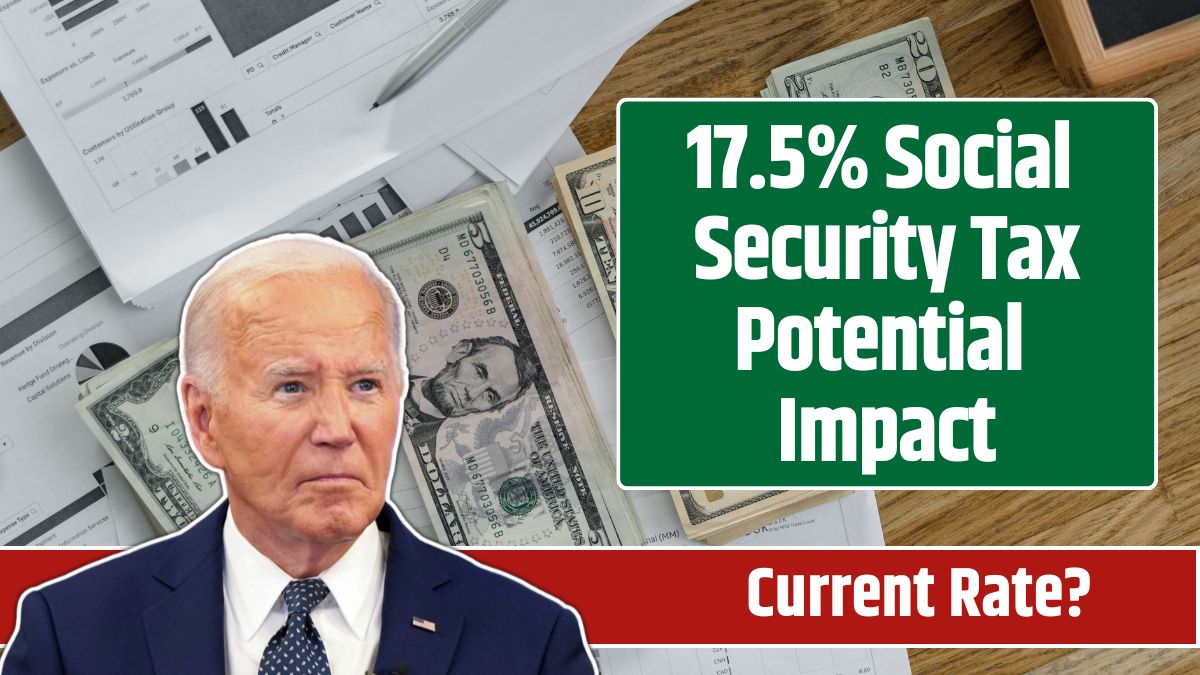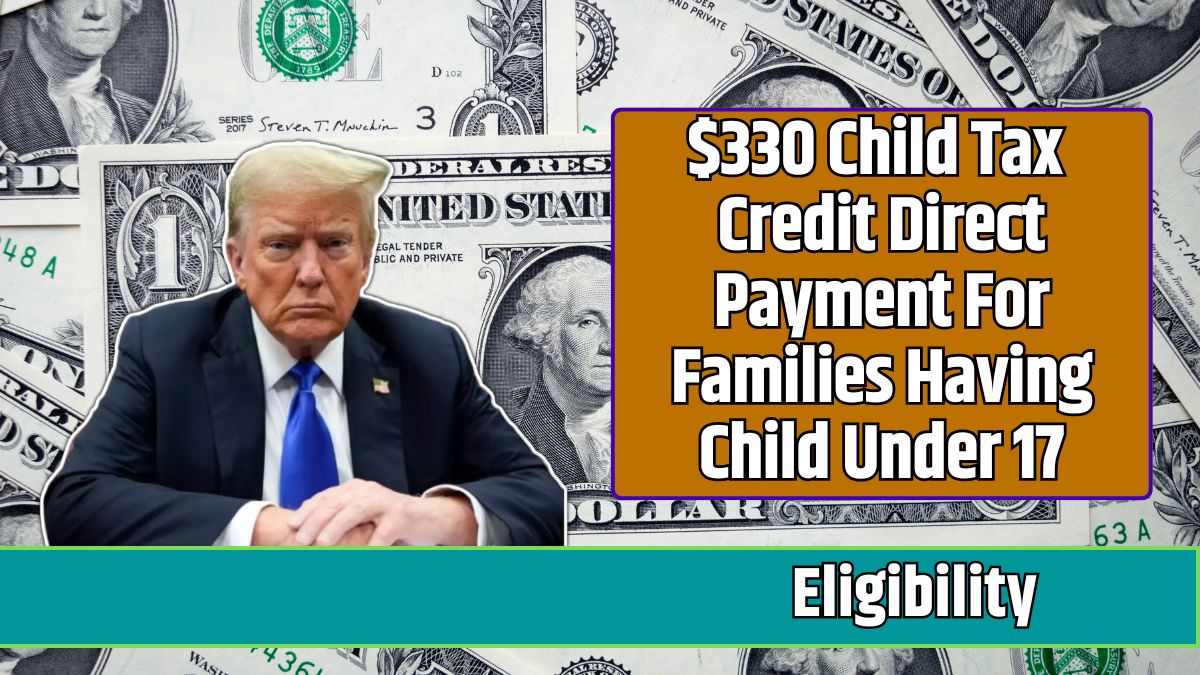Recently, social media and various platforms have been buzzing with claims about a potential increase in the Social Security tax from 12.4% to 17.5% in 2024.
This news has understandably caused concern among employees and self-employed individuals alike.
However, is this significant increase in the Social Security tax really happening? Let’s break down the facts, potential changes, and how it could impact your finances.
Current Social Security Tax Rate (2023–2024)
As of 2023, the Social Security tax rate is set at 12.4%. This tax is shared between employees and employers, each contributing 6.2%. Self-employed individuals, on the other hand, are responsible for the entire 12.4% themselves.
The tax is capped, meaning that earnings over a certain threshold are not subject to Social Security taxes. In 2023, this cap was $160,200, and in 2024, it is projected to rise to $168,600.
| Year | Tax Rate | Maximum Taxable Income |
|---|---|---|
| 2023 | 12.4% | $160,200 |
| 2024 | 12.4% | $168,600 |
With increasing inflation, longer life expectancy, and a growing number of retirees, there has been concern about the future sustainability of the Social Security system, prompting speculation about a 17.5% tax rate.
Will the Social Security Tax Increase to 17.5%?
As of 2024, no official announcement has been made to increase the Social Security tax to 17.5%. While this percentage has been mentioned in various reports, it remains speculative at this point.
The Social Security Trustees have warned that without changes, the system could face funding shortages, but no immediate action has been taken to raise the tax to such a level.
Experts suggest that in the future, an increase could be considered to keep the Social Security program solvent, but it is important to emphasize that no concrete changes have been enacted as of now.
The figure of 17.5% seems to stem from projections and potential policy discussions rather than actual government policy.
Why Is There Talk of a 17.5% Increase?
There are several factors fueling discussions about increasing the Social Security tax:
- Aging Population: With the Baby Boomer generation retiring, more people are drawing from Social Security while fewer are paying into the system.
- Longer Life Expectancy: Americans are living longer, which means they are collecting Social Security benefits for a more extended period.
- Inflation Adjustments (COLA): Social Security benefits are adjusted annually to account for inflation. In 2024, a 3.2% Cost of Living Adjustment (COLA) will increase the amount recipients get, putting additional financial pressure on the system.
- Revenue Shortfalls: Without adjustments, the Social Security Trust Fund could face shortfalls in future decades, necessitating either tax increases or benefit cuts.
Who Pays the Social Security Tax?
In the U.S., the Social Security tax is paid by both employees and employers, as well as self-employed individuals. The current contributions are:
- Employees: Pay 6.2% of their wages, up to the taxable income cap.
- Employers: Match this with a 6.2% contribution.
- Self-Employed: Pay the full 12.4% on net earnings up to the income cap.
Potential Impact of a 17.5% Social Security Tax Hike
If the Social Security tax were to increase to 17.5%, it would significantly raise the amount paid by both employees and employers, as well as the self-employed. Here is a breakdown of what this could mean at different income levels:
| Income Level | Current Tax (12.4%) | Proposed Tax (17.5%) | Difference |
|---|---|---|---|
| $50,000 | $6,200 | $8,750 | +$2,550 |
| $100,000 | $12,400 | $17,500 | +$5,100 |
| $168,600 (Max) | $20,896.80 | $29,505 | +$8,608.20 |
For example, at a $50,000 income level, the current tax paid is $6,200, but at 17.5%, it would rise to $8,750, adding $2,550 to the tax burden. For higher earners at the taxable income cap of $168,600, the increase would be $8,608.20 annually.
Fact Check: Is the 17.5% Social Security Tax Increase Real?
There is no official confirmation of a 17.5% Social Security tax increase for 2024. The Social Security Trustees have suggested that adjustments may be needed to maintain the program’s viability in the future, but no formal policy changes have been enacted to raise the tax to 17.5%.
While the 17.5% figure has been discussed in the context of long-term Social Security reform, it is essential to note that no official announcement has been made to increase the Social Security tax rate in 2024.
The current rate remains at 12.4%, and any future changes would likely be gradual and debated publicly before implementation.
If you are concerned about the future of Social Security taxes and how it might impact your finances, it’s a good idea to stay informed through official government websites like the Social Security Administration (SSA) and consult with a financial advisor.
FAQs
Is the Social Security tax really going up to 17.5% in 2024?
No, there is no official announcement of a 17.5% increase in the Social Security tax for 2024.
Why is there talk of a 17.5% tax rate?
The 17.5% rate has been suggested as a potential solution to future funding shortfalls for Social Security due to an aging population and longer life expectancies.
How much do employees currently pay for Social Security?
Employees currently pay 6.2% of their wages, with their employer matching that amount, for a total of 12.4%.
How will the 17.5% tax impact me if it’s implemented?
If implemented, it could add about $2,500 to $8,600 annually to your Social Security tax burden, depending on your income.
Should I expect an increase in Social Security tax soon?
While discussions about future tax increases exist, no immediate changes have been made for 2024.




















